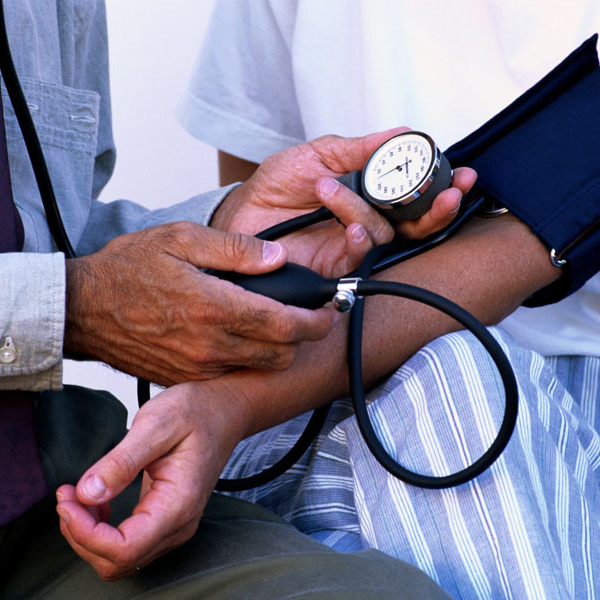High blood pressure, or hypertension, can result from a combination of lifestyle factors, underlying medical conditions, and genetic predisposition. Here are some of the primary causes:
Lifestyle Factors
- Dietary Habits
- High Salt Intake: Excessive sodium in the diet can cause the body to retain water, increasing blood pressure.
- Unhealthy Diet: Diets high in saturated fats, trans fats, and cholesterol can lead to hypertension.
- Physical Inactivity
- Sedentary Lifestyle: Lack of physical activity can contribute to weight gain and higher blood pressure.
- Obesity
- Excess Weight: Being overweight or obese increases the workload on the heart, raising blood pressure.
- Alcohol Consumption
- Excessive Drinking: Drinking too much alcohol can raise blood pressure over time.
- Smoking
- Tobacco Use: Smoking and exposure to secondhand smoke can temporarily increase blood pressure and damage artery walls.
- Stress
- Chronic Stress: Long-term stress can contribute to increased blood pressure.
Medical Conditions
- Chronic Kidney Disease
- Kidney Problems: Damaged kidneys can lead to increased blood pressure as they are less able to regulate fluid and salt balance.
- Sleep Apnea
- Obstructive Sleep Apnea: This condition causes breathing interruptions during sleep, which can elevate blood pressure.
- Diabetes
- High Blood Sugar: Diabetes can damage arteries and affect blood pressure regulation.
- Hormonal Disorders
- Thyroid Problems: Conditions such as hyperthyroidism or hypothyroidism can influence blood pressure.
- Adrenal Gland Disorders: Diseases like Cushing’s syndrome or primary aldosteronism can affect blood pressure.
Genetic Factors
- Family History
- Inherited Risk: Genetics play a role, and having a family history of hypertension increases the likelihood of developing the condition.
Medications and Substances
- Certain Medications
- Prescription and Over-the-Counter Drugs: Some medications, such as birth control pills, cold medications, and pain relievers, can raise blood pressure.
- Illicit Drugs
- Stimulants: Drugs like cocaine and amphetamines can cause a significant increase in blood pressure.
Age and Demographic Factors
- Age
- Aging: The risk of hypertension increases with age as blood vessels lose elasticity.
- Race
- Ethnic Background: Hypertension is more common and tends to be more severe in certain populations, such as African Americans.
Environmental Factors
- Socioeconomic Status
- Living Conditions: Poor living conditions and limited access to healthcare can contribute to higher rates of hypertension.
Prevention and Management
Managing high blood pressure involves a combination of lifestyle changes, medical treatment, and regular monitoring. Key strategies include:
- Healthy Diet: Emphasizing fruits, vegetables, whole grains, and low-fat dairy products while reducing salt intake.
- Regular Exercise: Engaging in physical activity for at least 150 minutes a week.
- Weight Management: Maintaining a healthy weight through diet and exercise.
- Limiting Alcohol and Quitting Smoking: Reducing alcohol consumption and stopping smoking.
- Stress Management: Practicing stress-reducing techniques such as mindfulness, meditation, and yoga.
- Medication: Taking prescribed antihypertensive medications as directed by a healthcare provider.
By addressing these factors, individuals can reduce their risk of developing high blood pressure and its associated complications.
